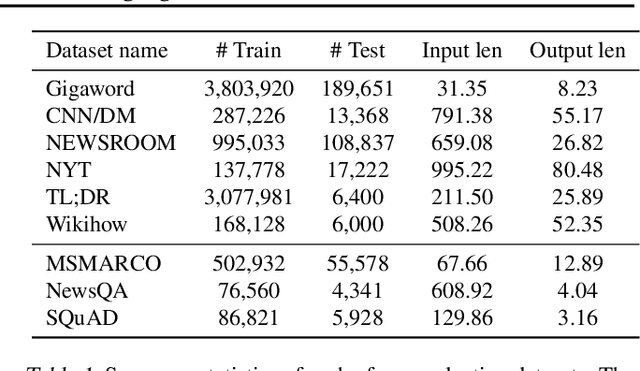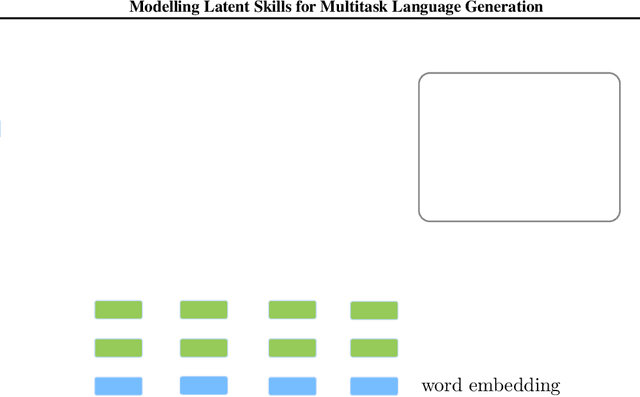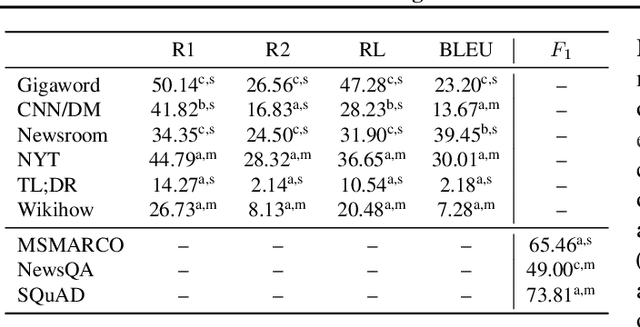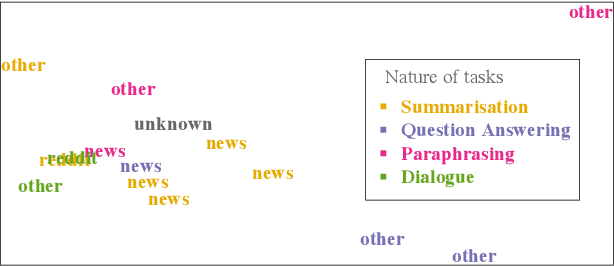Modelling Latent Skills for Multitask Language Generation
Paper and Code
Feb 21, 2020



We present a generative model for multitask conditional language generation. Our guiding hypothesis is that a shared set of latent skills underlies many disparate language generation tasks, and that explicitly modelling these skills in a task embedding space can help with both positive transfer across tasks and with efficient adaptation to new tasks. We instantiate this task embedding space as a latent variable in a latent variable sequence-to-sequence model. We evaluate this hypothesis by curating a series of monolingual text-to-text language generation datasets - covering a broad range of tasks and domains - and comparing the performance of models both in the multitask and few-shot regimes. We show that our latent task variable model outperforms other sequence-to-sequence baselines on average across tasks in the multitask setting. In the few-shot learning setting on an unseen test dataset (i.e., a new task), we demonstrate that model adaptation based on inference in the latent task space is more robust than standard fine-tuning based parameter adaptation and performs comparably in terms of overall performance. Finally, we examine the latent task representations learnt by our model and show that they cluster tasks in a natural way.
 Add to Chrome
Add to Chrome Add to Firefox
Add to Firefox Add to Edge
Add to Edge